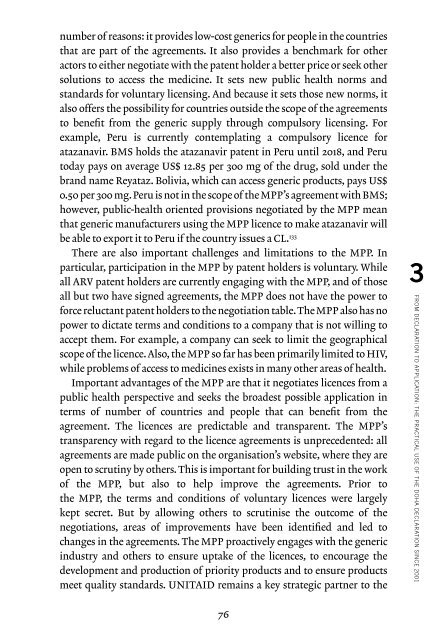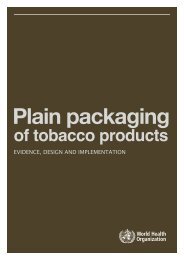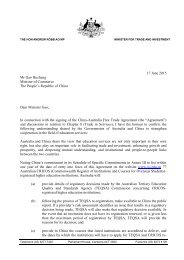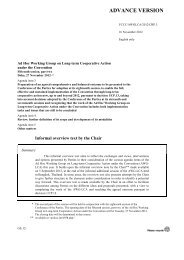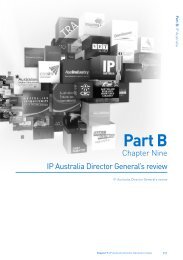PRIVATE PATENTS AND PUBLIC HEALTH
private-patents-and-public-health
private-patents-and-public-health
You also want an ePaper? Increase the reach of your titles
YUMPU automatically turns print PDFs into web optimized ePapers that Google loves.
number of reasons: it provides low-cost generics for people in the countries<br />
that are part of the agreements. It also provides a benchmark for other<br />
actors to either negotiate with the patent holder a better price or seek other<br />
solutions to access the medicine. It sets new public health norms and<br />
standards for voluntary licensing. And because it sets those new norms, it<br />
also offers the possibility for countries outside the scope of the agreements<br />
to benefit from the generic supply through compulsory licensing. For<br />
example, Peru is currently contemplating a compulsory licence for<br />
atazanavir. BMS holds the atazanavir patent in Peru until 2018, and Peru<br />
today pays on average US$ 12.85 per 300 mg of the drug, sold under the<br />
brand name Reyataz. Bolivia, which can access generic products, pays US$<br />
0.50 per 300 mg. Peru is not in the scope of the MPP’s agreement with BMS;<br />
however, public-health oriented provisions negotiated by the MPP mean<br />
that generic manufacturers using the MPP licence to make atazanavir will<br />
be able to export it to Peru if the country issues a CL. 133<br />
There are also important challenges and limitations to the MPP. In<br />
particular, participation in the MPP by patent holders is voluntary. While<br />
all ARV patent holders are currently engaging with the MPP, and of those<br />
all but two have signed agreements, the MPP does not have the power to<br />
force reluctant patent holders to the negotiation table. The MPP also has no<br />
power to dictate terms and conditions to a company that is not willing to<br />
accept them. For example, a company can seek to limit the geographical<br />
scope of the licence. Also, the MPP so far has been primarily limited to HIV,<br />
while problems of access to medicines exists in many other areas of health.<br />
Important advantages of the MPP are that it negotiates licences from a<br />
public health perspective and seeks the broadest possible application in<br />
terms of number of countries and people that can benefit from the<br />
agreement. The licences are predictable and transparent. The MPP’s<br />
transparency with regard to the licence agreements is unprecedented: all<br />
agreements are made public on the organisation’s website, where they are<br />
open to scrutiny by others. This is important for building trust in the work<br />
of the MPP, but also to help improve the agreements. Prior to<br />
the MPP, the terms and conditions of voluntary licences were largely<br />
kept secret. But by allowing others to scrutinise the outcome of the<br />
negotiations, areas of improvements have been identified and led to<br />
changes in the agreements. The MPP proactively engages with the generic<br />
industry and others to ensure uptake of the licences, to encourage the<br />
development and production of priority products and to ensure products<br />
meet quality standards. UNITAID remains a key strategic partner to the<br />
3<br />
FROM DECLARATION TO APPLICATION: THE PRACTICAL USE OF THE DOHA DECLARATION SINCE 2001<br />
76


